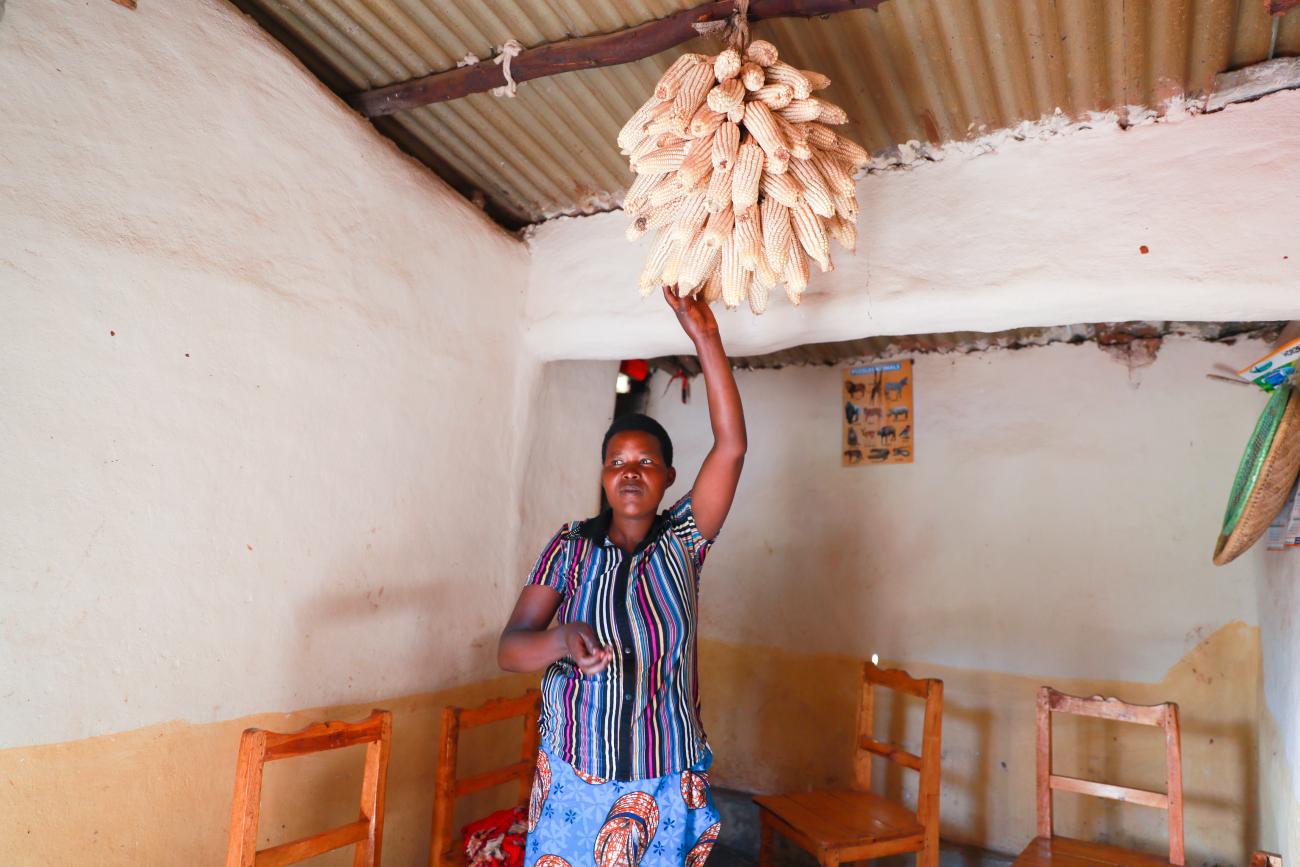Living as a refugee in a camp presents numerous physical and emotional shocks, but adequate food is one of the major timely concerns. With rising prices and shrinking aid to refugees globally, the limited food supply exacerbates the already difficult living conditions for families in the camp.
However, Desange Nyiramugisha, a Congolese refugee residing in the Mugombwa Refugee Camp in the Gisagara district of Southern Rwanda, has managed to overcome these prevalent adversaries by embracing farming to transform her family's life. Engaging in maize farming through the UN Rwanda’s Joint Programme, commonly known as the “Misizi Marshland Project” Nyiramugisha is among the successful refugees who have ensured an ample food supply for her loved ones, defying all the odds.
“Our monthly allowance is insufficient, and you know buying food is expensive. But with this project, when I cultivate and harvest maize and another foodstuff, my children drink porridge, and we also eat the beans we harvest.”. She said, adding, “My life is different from that of a refugee who doesn’t farm.”
Nyiramugisha has been living in Rwanda as a refugee for the last 12 years since she fled from her home country, the Democratic Republic of Congo. She explains how her life has improved with a great sense of hope and peace.
The Misizi Marshland Joint Programme began in 2018 and brought together UNHCR, FAO, and WFP. The IKEA Foundation funded it with the aim to enhance the socio-economic inclusion of refugees while increasing livelihood opportunities and food security for both refugees and Rwandans.
For the project to be successful and benefit the community, the district authority provided the land. At the same time, FAO contributed seeds and technical expertise, while UNHCR engaged the refugee communities, in registering and participating in agriculture activities. WFP supported the development of marshland agriculture and linked farmers with markets. By working side by side on farms and by sharing resources., the Joint Programme contributed to boosting the peaceful coexistence of refugees and host communities
“This programme united us. You cannot tell who a refugee is and who is not,” said Jean Niyitegeka, a Gisagara district resident.
Ms. Aissatou Masseck Dieng-Ndiaye, UNHCR Representative, believes that the partnership between the Government, host communities, refugees, and the participating United Nations Agencies was key to the programme’s success.
“We worked closely with the district authorities and the private sector to ensure the sustainability of marshland agriculture in the long term. This is truly an example of the global compact on refugees in action,” she said,
“Agriculture is one of the sectors helping refugees to have food security, generate more income, and have a better life in the host country. We thank the Government for the generosity.” Said Ms. Coumba Sow, the FAO Representative.
With the use of quality inputs and best farming practices, the Joint Programme has increased agricultural productivity, where maize yield increased from 1,016 kg/ha (2018/19) to 2,451 (2021/22), and the construction of infrastructure such as drying and storage sheds and training on good agricultural practices improved efficiency.
The programme contributed to various Sustainable Development Goals, especially SDG 2, “Zero Hunger”, and the strategic priorities of the UN Sustainable Development Cooperation Framework. Outcome number one of the Cooperation Framework under the Economic Transformation pillar states, “By 2024, people in Rwanda will benefit from more inclusive, competitive, and sustainable economic growth that generates decent work and promotes quality livelihoods for all.”






